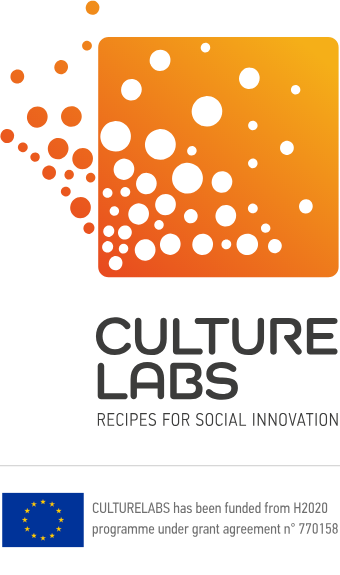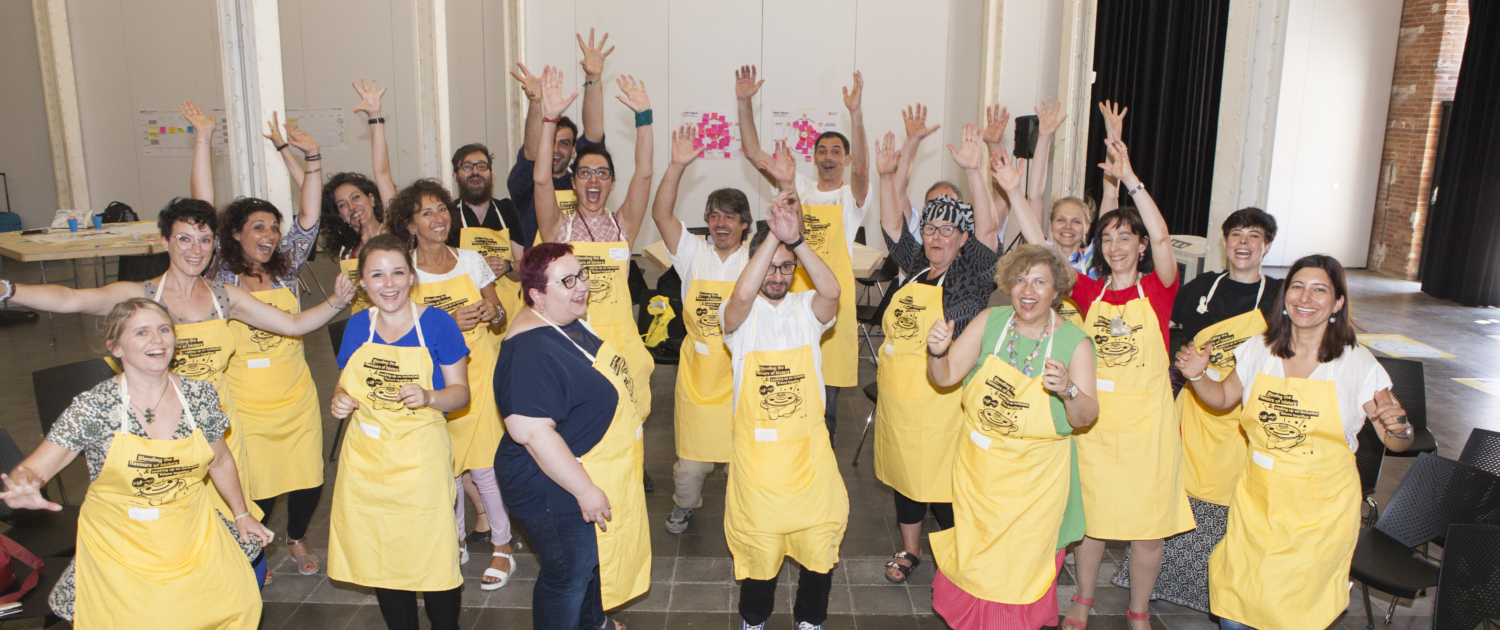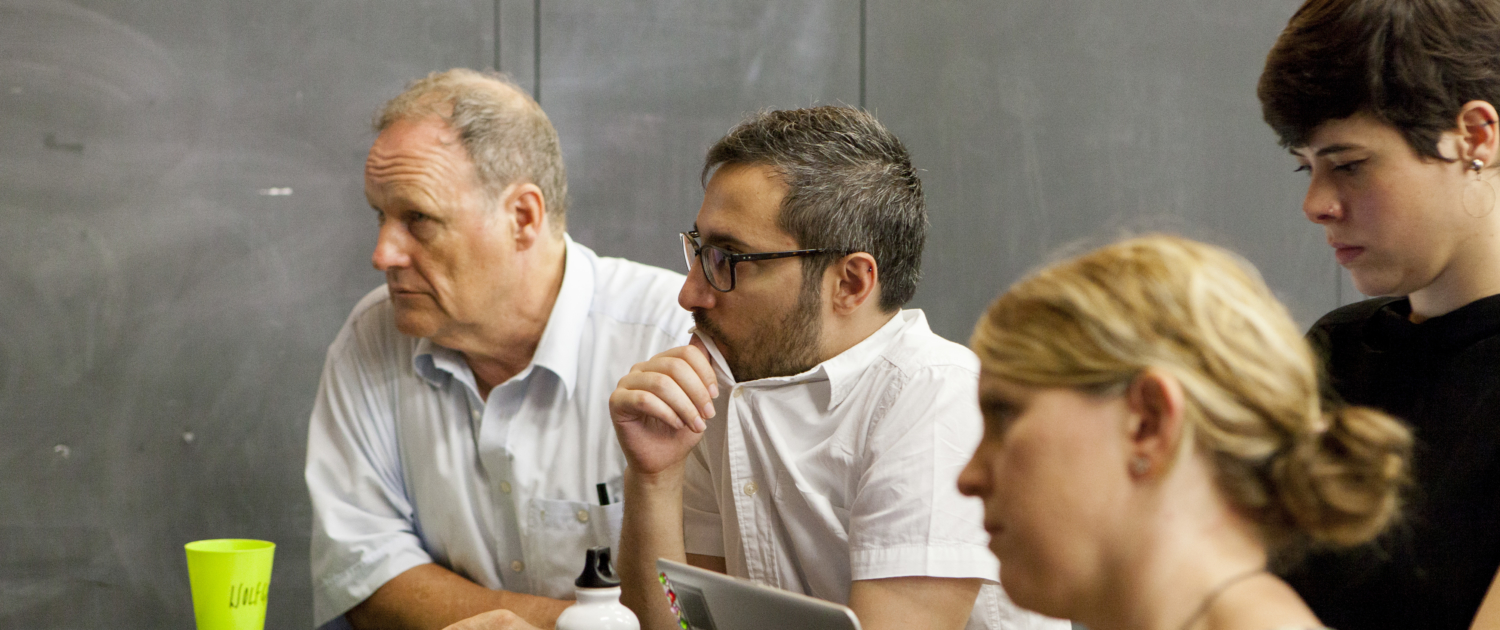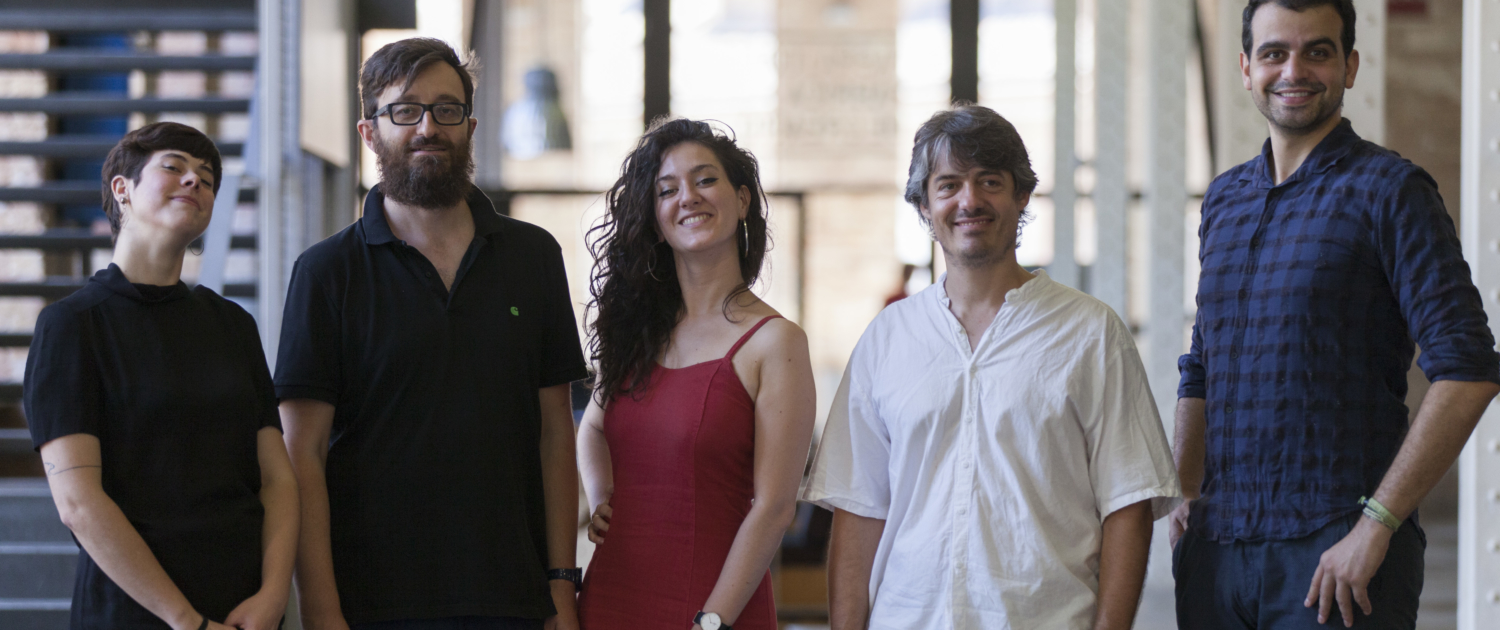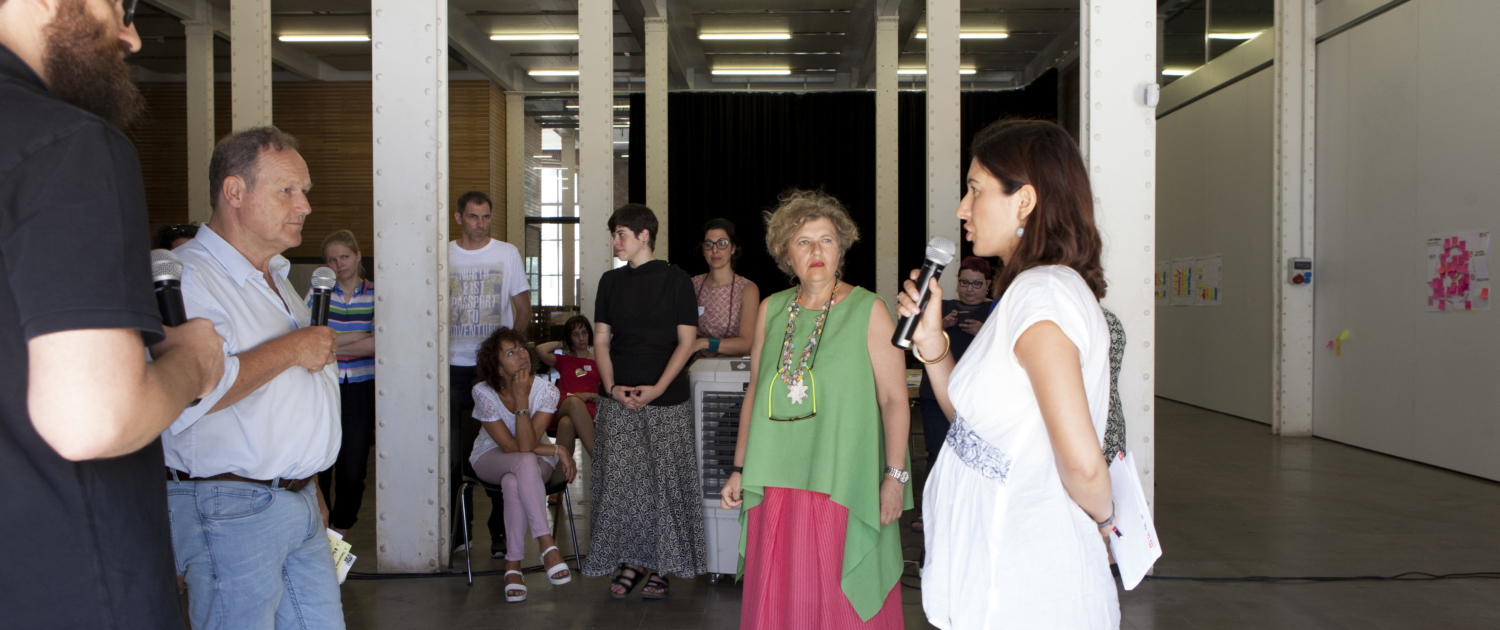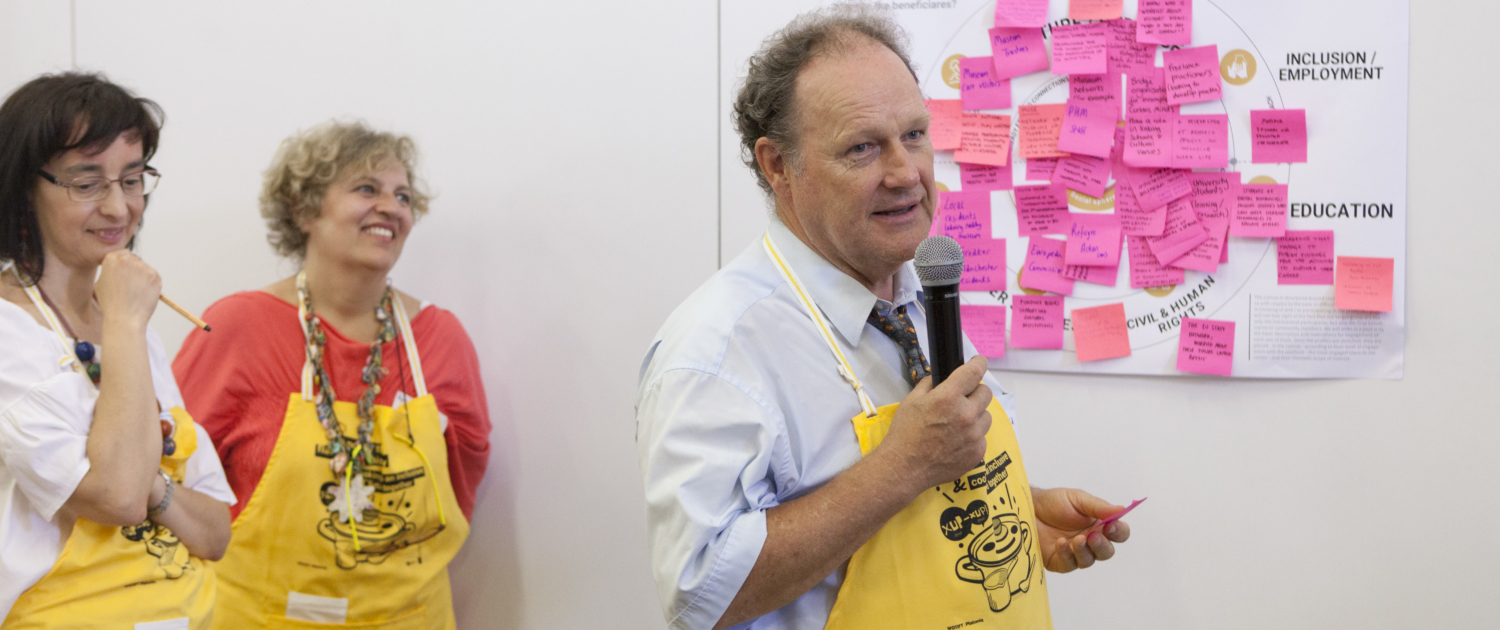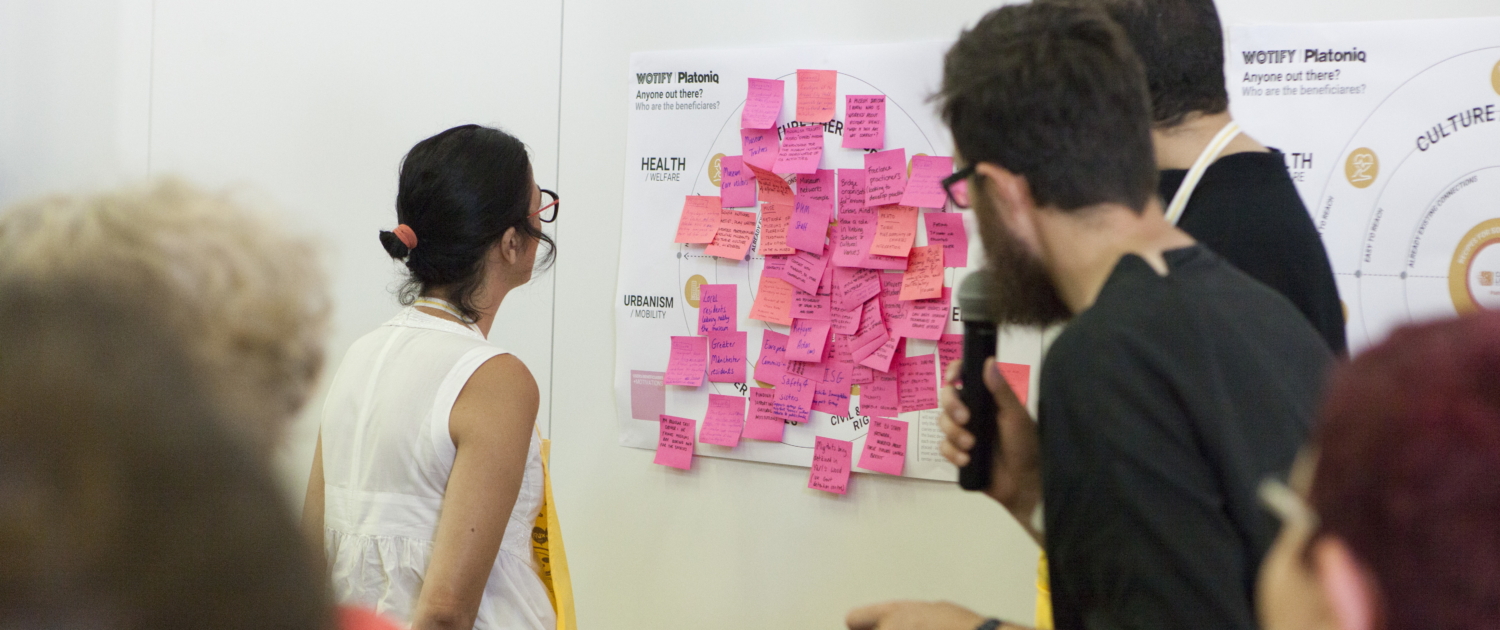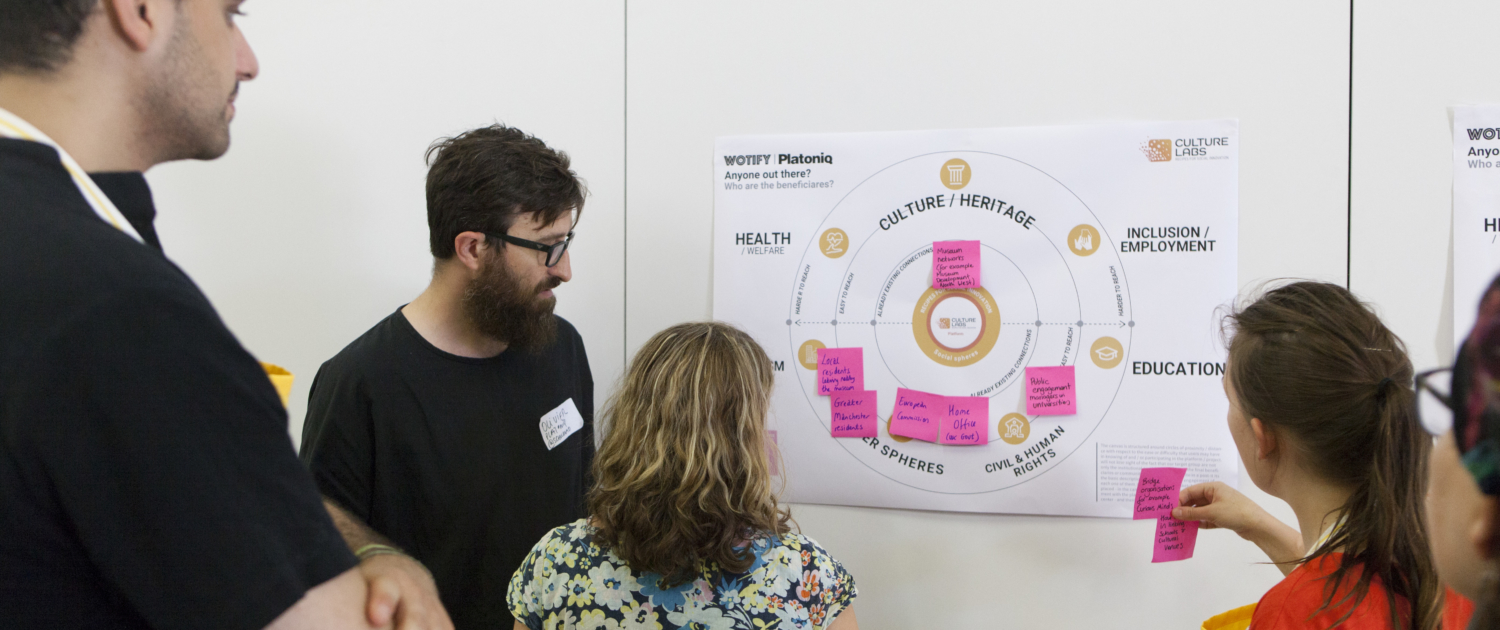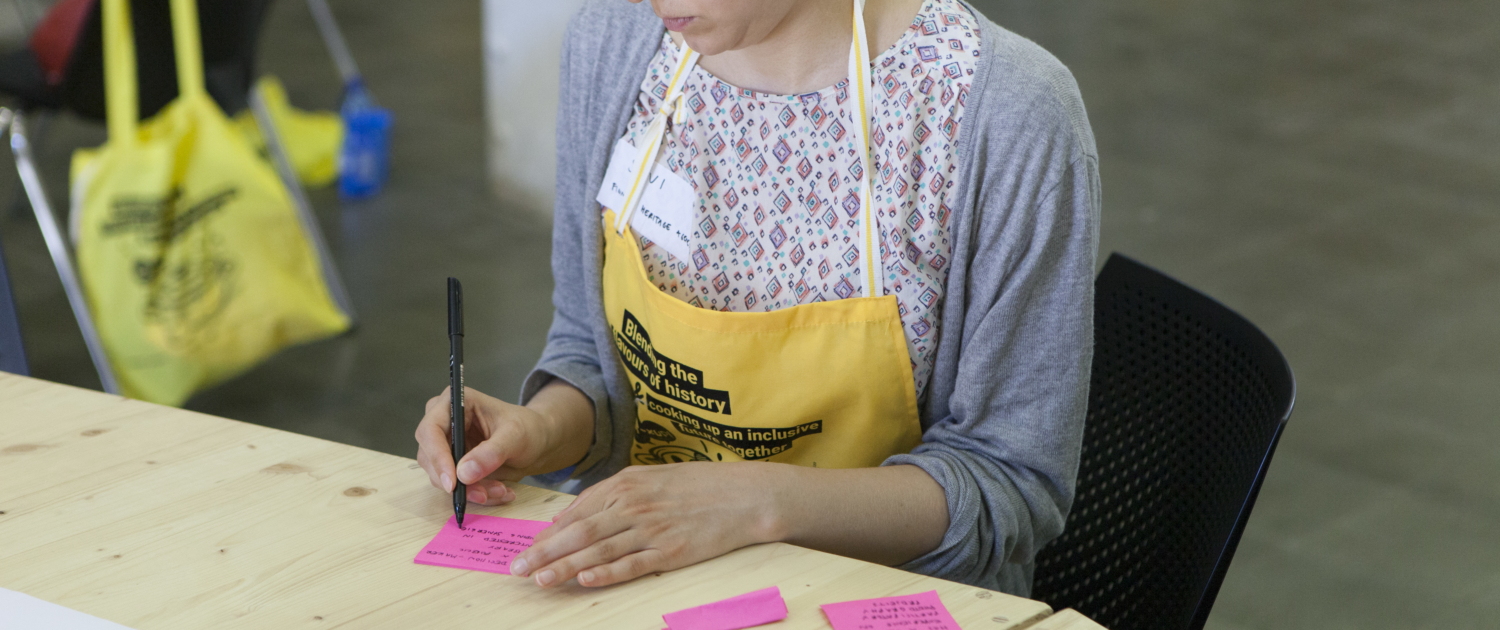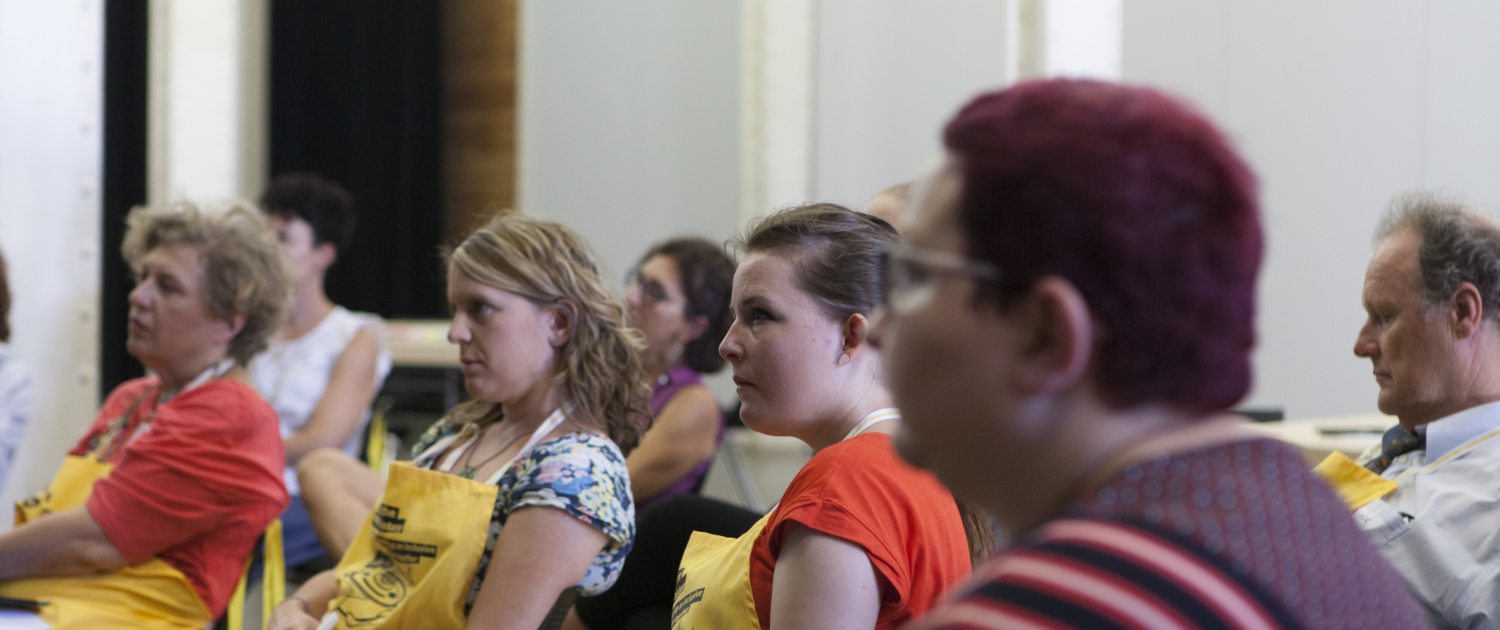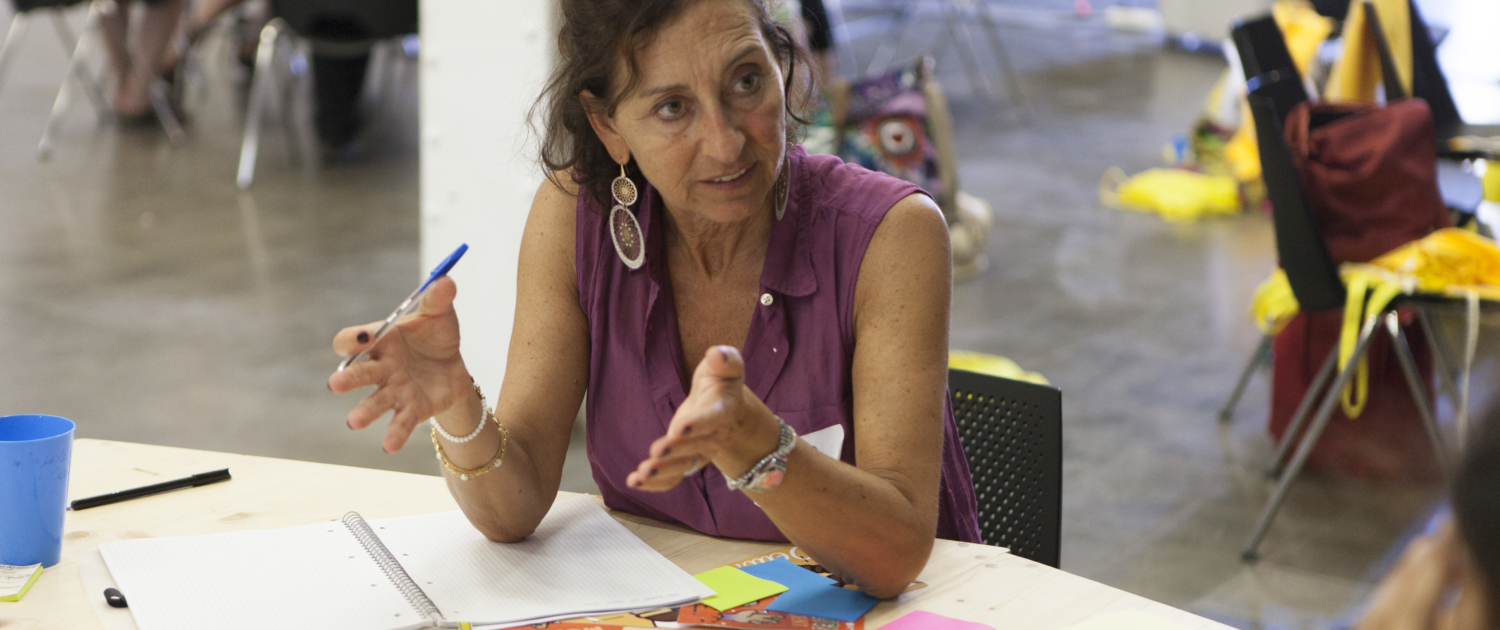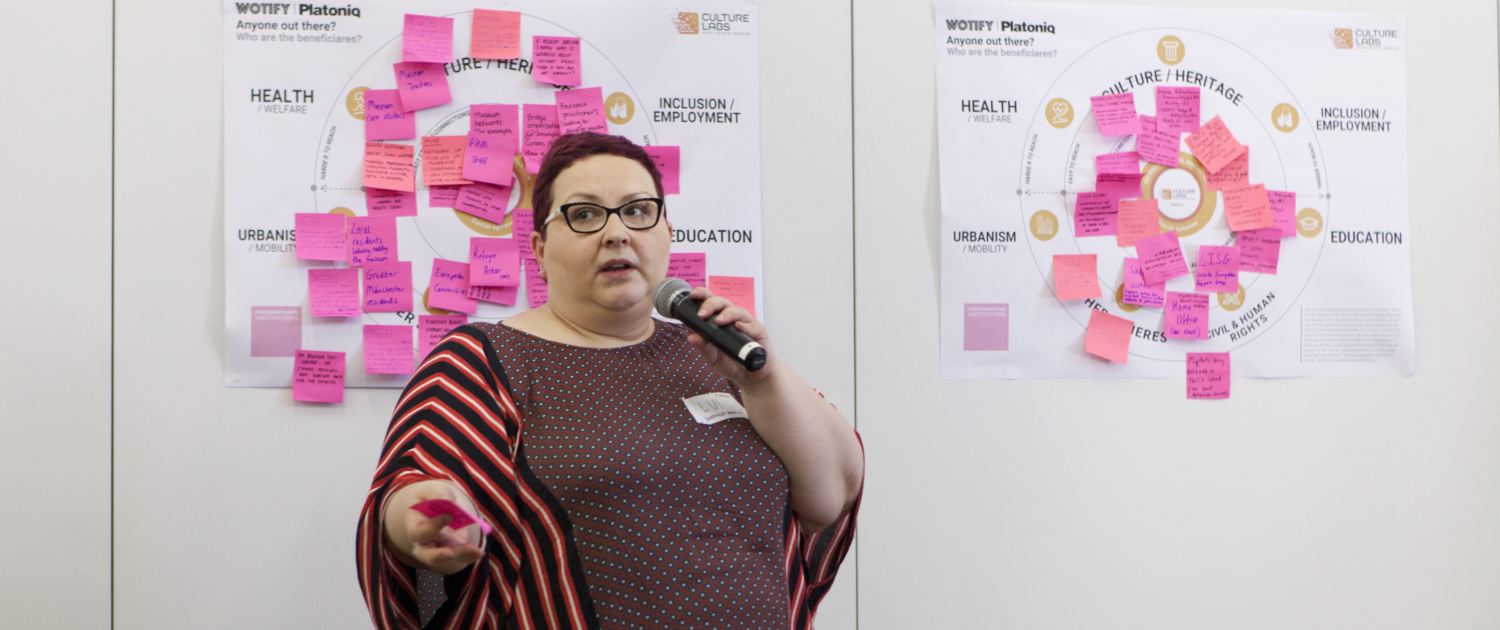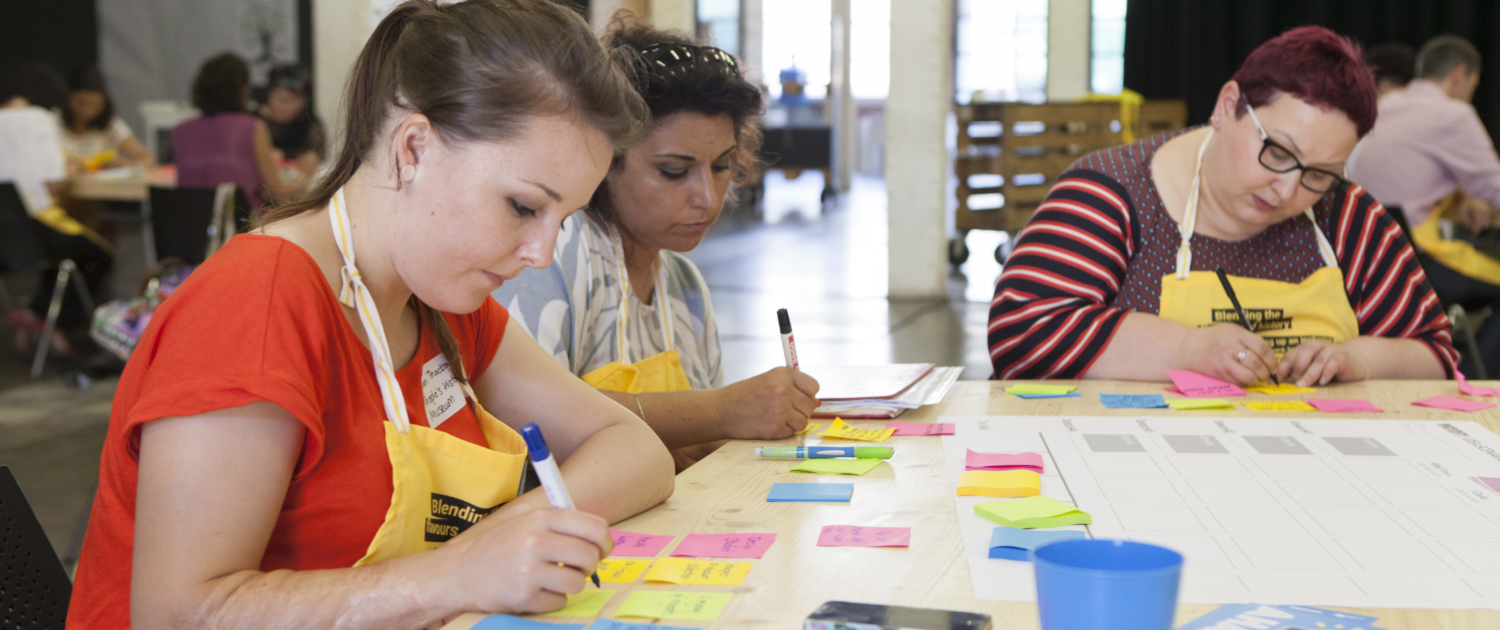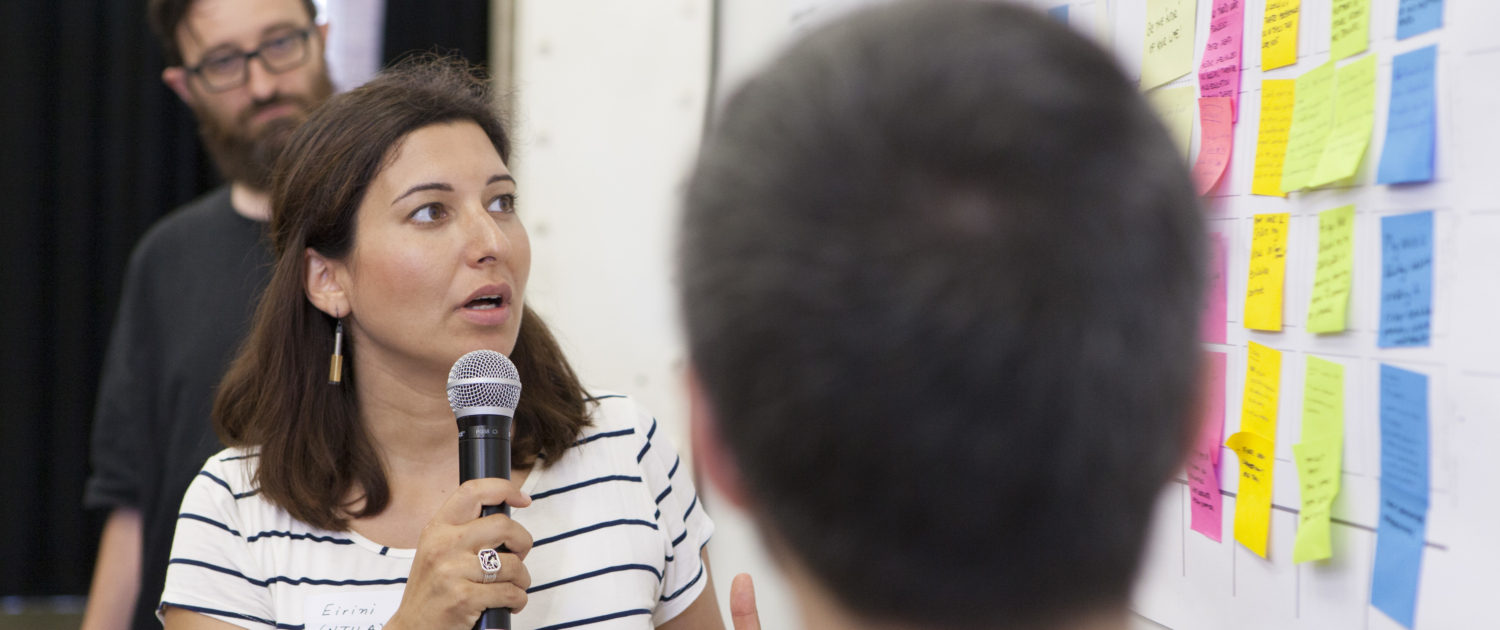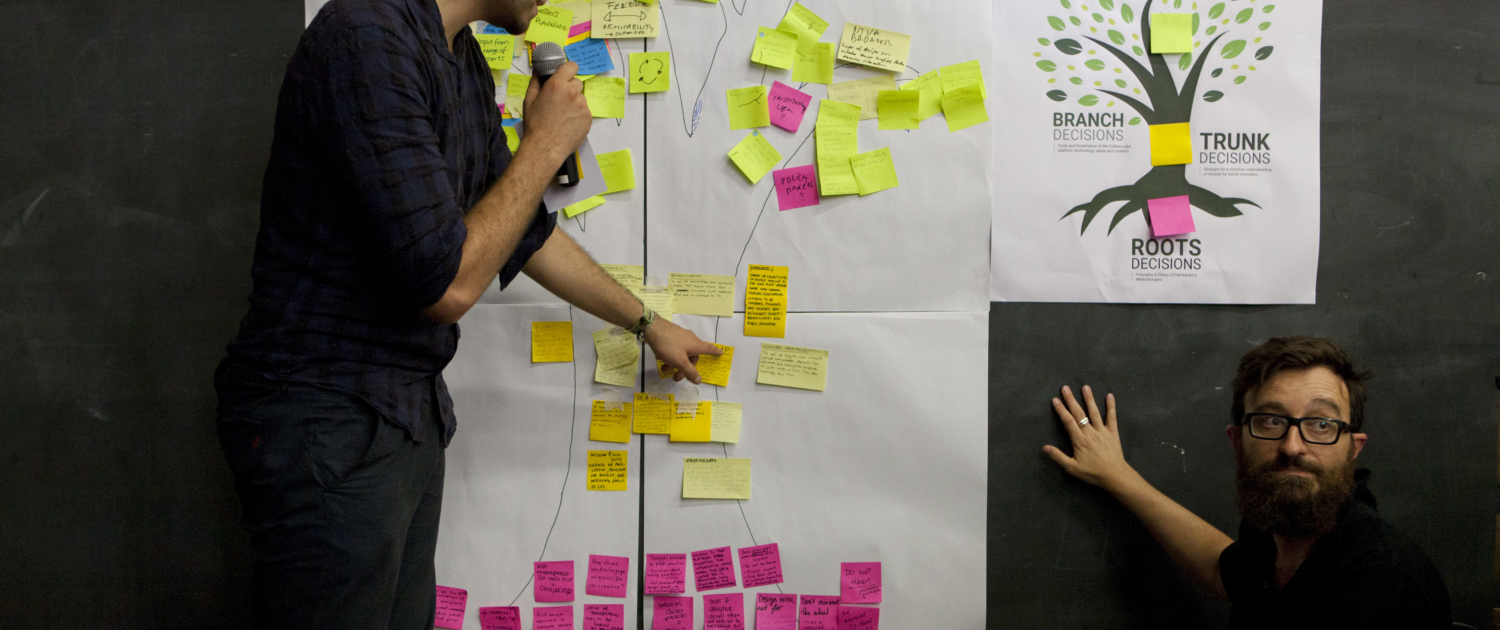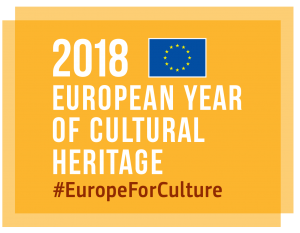CultureLabs consist of broad and heterogeneous European partnership where each entity represents an excellence from a national and European perspective.
The quality of the partnership is also based on the ability to merge and bring together generic abilities and specific skills related to CultureLabs purposes: from the implementation of academic research projects to the realization of public communications campaigns, from the organisation of complex events to the implementation of cultural participatory approaches for museums and galleries, from the development of social integration plans to the production of digital tools and digital platforms.
“9 Partners from 6 countries involved in the project”
Greece
Institute of Communication and Computer Systems of the National Technical University of Athens
website: https://www.iccs.gr/en/
ICCS-NTUA is the Institute of Communication and Computer Systems (ICCS) of the School of Electrical and Computer Engineering (ECE) of the National Technical University of Athens (NTUA). ICCS was founded in 1992 with the ‘charta’ to support the performance of top-quality research, development activities and the provision of scientific service to private and public bodies.
ICCS-NTUA is the coordinator of CultureLabs and via the Intelligent Systems, Content & Interaction Lab (https://www.ece.ntua.gr/en/labs/46) it brings in its expertise in the aggregation, management, and creative reuse of digital Cultural Heritage. Since 2004, the Lab is one of the main bodies that drives technological progress forward in the fields of digitisation, documentation, and identification of cultural content on a national and European scale, actively participating in the creation and development of the European Digital Library – Europeana.
Together with Singular Logic (and secondarily Platoniq) it is responsible for the implementation of the CultureLabs software components, having the leading role in the development of the database and service layers, as well as of the environment of creative interaction with CH and the custom spaces.
Singular Logic
website: https://portal.singularlogic.eu/
Singular Logic is the leading Software and Integrated IT Solutions Group in Greece, offering advanced and integrated IT systems as well as full support services. Among many other R&D activities, SingularLogic operates in the field of Big Data and Content Technologies: it develops and integrates tools enabling data collection, cleaning and management, knowledge extraction, as well as novel data analytics methods, such as machine learning and deep learning techniques in integrated big data platforms. Special focus is placed on the integration and harmonization of heterogeneous data to make it available for business analytics, health applications, culture, security and other application domains.
Based on its expertise, within the CultureLabs project, SingularLogic leads the integration of the CultureLabs platform and its customisation to the different pilot sites’ needs. The company is also responsible for the design and implementation of the collaborative tools of the platform that facilitate the organization and conduction of truly participatory projects.
United Kingdom
Sheffield Hallam University
website: https://www.shu.ac.uk/
Sheffield Hallam University (SHU) is one of the largest universities in the UK, with more than 30,000 students and 4,000 staff, offering approximately 610 different courses.
The University has 30 research centres that have had outstanding success in government research exercises, income generation and industrial cooperation by coupling fundamental research in areas of international standing to the exploration of commercial opportunities.
In CultureLabs, SHU will leverage its extensive expertise in participatory design and co-creation, particularly in the context of Cultural Heritage (CH) in order to contribute to the survey of current approaches to participation in CH, and of uses and applications of ICT to social innovation and CH and to lead a specific action with the goal of establishing requirements for methodology, resources and case studies in CultureLabs.
People’s History Museum
website: https://phm.org.uk/
Over 100,000 people visit annually including Manchester and Greater Manchester residents, national and international visitors, the People’s History Museum is Accredited by the Arts Council and all of the museum’s collections have Designated status from the Department of Culture, Media and Sport.
The Museum provides expert help and advice, playing an active role in the cultural sector and carrying out specialist services such as conservation for other organisations. A learning programme is provided for early years, schools, colleges, universities and community learners, improving knowledge and understanding, and boosting skills and employability. The museum’s active volunteer programme provides opportunities for people to gain valuable work experience.
Finland
Museovirasto – Finnish Heritage Agency
website: https://www.museovirasto.fi/en/
The Finnish Heritage Agency works to promote the conservation, sustainable use and greater recognition of cultural heritage. It preserves, collects, studies and displays items and artefacts that represent cultural heritage of national importance.
It produces information about cultural environments and artefacts that is made available for everyone, for example through the exhibitions and events
organised by its own museums and with the help of information systems, online materials and publications.
The Picture Collections of the Finnish Heritage Agency record, care for, and study cultural and historical, ethnological, architectural historical and journalistic picture materials and make them available for public use. The collections include a total of approximately 18 million pictures created with different techniques, dating from the 1500s to the present. Collections include material mostly from Finland, but have also plenty of images from all over the world and from different cultures.
Italy
Fondazione Sistema Toscana
Fondazione Sistema Toscana (FST) is a non-profit partecipative foundation created in 2005 by the Tuscany Region with the aim to promote the Tuscan territorial system through integrated multimedia communication tools. Among its goals, the FST has the mission of overcoming the digital divide and the cultural divide related to the themes of new media and new technologies as well as implementing actions and strategies in cultural and social fields in order to promote Tuscany and its heritage.
In CultureLabs, the establishment of a strong collaboration between FST and Pisa University Museum System (that oversees 9 different museum) will allow to organise and plan a pilot dedicated to specific initiatives focusing on immigrants communities and their relative involvement in the local cultural heritage.
COOSS Marche ONLUS scpa
website: http://www.cooss.it/en/
COOSS is a non-profit organization providing social services to disadvantaged people in Marche Region. Born in 1979, it counts more than 2,700 employees and 8,800 users.
COOSS sectors of intervention are: Old Age, Disability, Mental Health, Childhood, Addictions, Minors, Immigration, New Poverty, Guidance and Employment, Home Care, Social Welfare.
It manages a great number of residential and daily settings for elderly, minors, disabled people, providing educational and care services.
It provides labor insertion initiatives for disadvantaged groups, first acceptance services for asylum seekers and refugees, in collaboration with local authorities. Since 1993, COOSS has its own Research&Training Department, working on proposal of participation to EU and National research projects dealing with social issues.
In CultureLabs, COOSS leads a comprehensive study of existing practices and stakeholders’ requirements analysis, in line with its role as the connecting link
between institutions and immigrants (and disadvantaged) communities. It will contribute both to institutional stakeholders analysis and services overview, providing input based on its extensive collaborations with local governments and Cultural Institutions.
Germany
European Forum for Migration Studies
website: http://www.efms.uni-bamberg.de/
The Europäisches Forum für Migrationsstudien (EFMS), founded in 1993, is a research institute studying the causes, consequences and broader implications of migration with the aim of contributing to an informed discourse on migration and integration in Germany and Europe.
Its work in the areas of migration, integration and anti-discrimination encompasses research, documentation and publication, as well as evaluation and consultative services, organisation of expert workshops and conferences and providing information to the public.
To fulfill these objectives the EFMS has been continuously monitoring developments in the field of migration and integration processes and policies in Germany and Europe.
Furthermore, interdisciplinary and international cooperation has been established aiming at the exchange of information between researchers, politicians, administrators, educators, NGOs, the general public and those working in the media. The EFMS seeks to assist in shaping a viable and humane migration and integration policy.
Spain
Platoniq
website: http://platoniq.net/en/
Platoniq is an international non-profit organization made up of cultural producers and software developers based in Barcelona since 2001, pioneer in the production and distribution of open culture and the design of social innovation tools, which have been presented at innovation congresses and digital culture festivals and have been set off in organisations such as the Basque Mondragon Group and several educational and cultural spaces around Europe, Asia and Latin America.
Since 2005, they carry out activities and projects, with a unique spin on cultural heritage, remix, collaboration, and sharing where the social uses of ICTs and networking are applied to enhance communication, self-training, social entrepreneurship, and citizen’s organisation.
Their work generates innovative software applications and training methods endorsed by national and international institutions including local governments, universities, professional associations and innovation agencies.
Platoniq methods and tools are a coherent system for disruptive open innovation and design thinking solutions based on online and offline co-creation, resource distribution, and open, modular development at a transnational and multi-stakeholder level, for needs and opportunities in the local and European contexts.
Our videos
-

CultureLabs - Partner: ICCS-INTUA
CultureLabs - Recipes for social innovation
Eirini Kaldeli (research associates in computer science) introduces the Institute of Communication and Computer Systems of the National Technical University of Athens (ICCS-NTUA) and its role in #CultureLabs as coordinator of the project -

CultureLabs - Partner: Singular Logic
CultureLabs - Recipes for social innovation
Gianna Tsakou (senior project manager & analyst) introduces Singular Logic and its role in #CultureLabs. -

CultureLabs - Partner: Sheffield Hallam University
CultureLabs - Recipes for social innovation
Luigina Ciolfi (Professor of Human science computing) introduces Sheffield Hallam Univerity and its role in #CultureLabs. -

CultureLabs - Partner: People History Museum
CultureLabs - Recipes for social innovation
Jenny Mabbott (Head of Collections and Engagement) introduces People History Museum of Manchester and its role in #CultureLabs. -

CultureLabs - Partner: Finnish Heritage Agency/Museovirasto
CultureLabs - Recipes for social innovation
Suvi Sillanpää (Project planner) introduces Finnish Heritage Agency / Museovirasto and its role in #CultureLabs. -

CultureLabs - Partner: Fondazione Sistema Toscana
CultureLabs - Recipes for social innovation
Adriana De Cesare (Manager of european and territorial project dept.) introduces Fondazione Sistema Toscana (FST) and its role in #CultureLabs. -

Culture Labs - Partner: COOSS
Culture Labs - Recipes for social innovation
Valentina Pergolotti (legal operator) introduces COOSS social cooperative and its role in #CultureLabs. -

CultureLabs - Partner: European Forum for Migration Studies
CultureLabs - Recipes for social innovation
Wolfgang Bosswick (senior researcher and managing director) introduces European Forum for Migration Studies (EFMS) and its role in #CultureLabs. -

CultureLabs - Partner: Platoniq
CultureLabs - Recipes for social innovation
Olivier Schulbaum (president) introduces Platoniq innovation agency and its role in #CultureLabs.
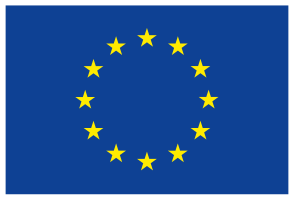
CULTURELABS project has received funding from the European Union’s Horizon 2020 research and innovation programme under grant agreement No 770158. The sole responsibility for the content published on this website lies with the authors. The EU is not responsible for any use that may be made of the information contained therein.
